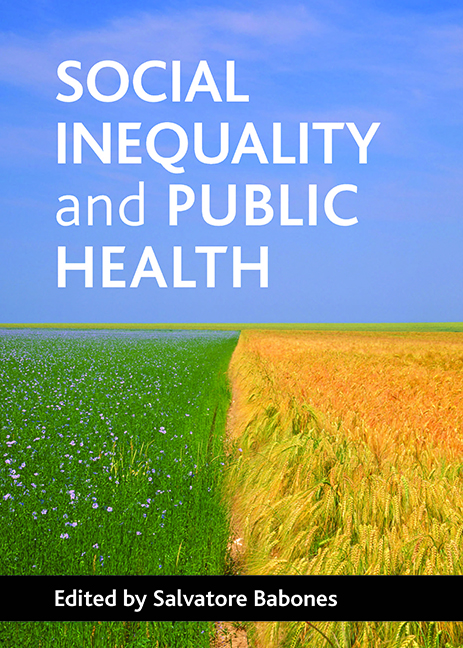Book contents
- Frontmatter
- Contents
- List of figures, tables, maps and boxes
- Preface
- Notes on contributors
- one Introduction
- Pathway 1 Differences in individual health behaviours
- Pathway 2 Group advantage and disadvantage
- Pathway 3 Psychosocial factors in individual health
- Pathway 4 Healthy and unhealthy societies
- Conclusions Public understanding of the new public health
- Index
eleven - The impact of inequality: empirical evidence
Published online by Cambridge University Press: 22 January 2022
- Frontmatter
- Contents
- List of figures, tables, maps and boxes
- Preface
- Notes on contributors
- one Introduction
- Pathway 1 Differences in individual health behaviours
- Pathway 2 Group advantage and disadvantage
- Pathway 3 Psychosocial factors in individual health
- Pathway 4 Healthy and unhealthy societies
- Conclusions Public understanding of the new public health
- Index
Summary
Introduction
Attitudes to inequality are perhaps at the core of the political divide between Left and Right. But what inequality does or does not do to us has remained largely a matter of conjecture and personal opinion. Now, however, that is changing. For the first time, we have comparable measures of the scale of inequality in different societies and can actually see what effect it has. Many people believe that inequality is socially divisive and adds to the problems associated with relative deprivation. New empirical evidence not only confirms that this is true, it also suggests that inequality is the most important explanation of why, despite their material success, some societies seem to be social failures. The effects of inequality on the social fabric are so clear and so strong that the research findings begin to suggest how we might not only transform society and the quality of our lives, but also rein in the consumerism that increasingly threatens the environment.
What greater equality brings
In societies where income differences between rich and poor are smaller, the statistics show not only that social capital is stronger and people are much more likely to trust each other, but also that there is less violence (including substantially lower homicide rates), that health is better, life expectancy is several years longer, prison populations are smaller, birth rates among teenagers are lower, levels of educational attainment among schoolchildren tend to be higher and, lastly, there is more social mobility. In all these fields we find that where income differences are narrower, outcomes are better (Wilkinson, 2005; Wilkinson and Pickett, 2007).
That is a lot to attribute to inequality, but all these relationships show up clearly in the data, they are statistically significant and cannot be dismissed as chance findings. Some have already been shown in large numbers of studies – there are, for instance, over 170 looking at the tendency for health to be better in more equal societies and something like 40 looking at the relation between violence and inequality (Hsieh and Pugh, 1993; Wilkinson and Pickett, 2006). At a minimum, these different social outcomes have been shown to be related to income inequality both among the richest developed countries and, independently, among the 50 states of the US.
- Type
- Chapter
- Information
- Social Inequality and Public Health , pp. 159 - 168Publisher: Bristol University PressPrint publication year: 2009



